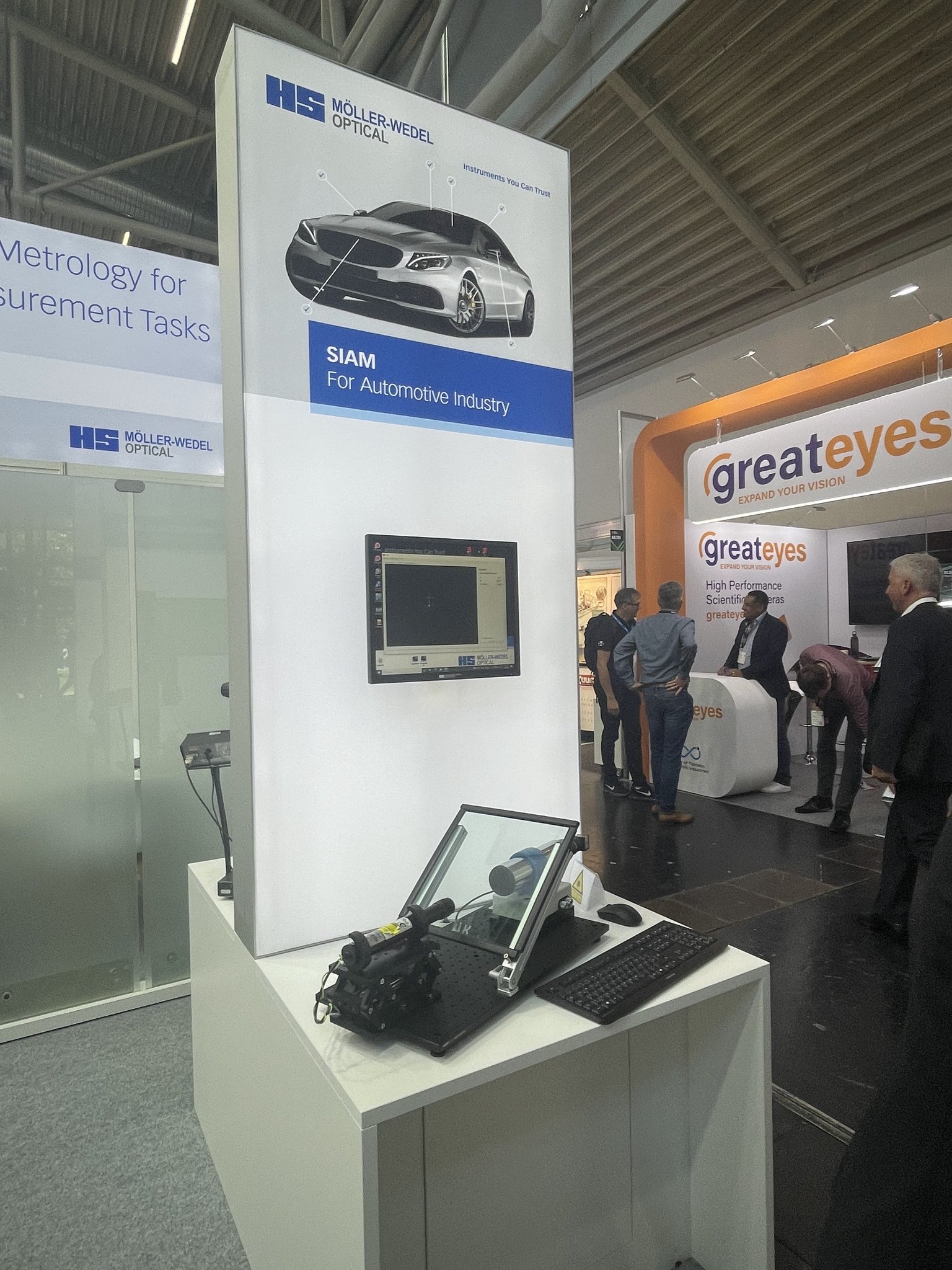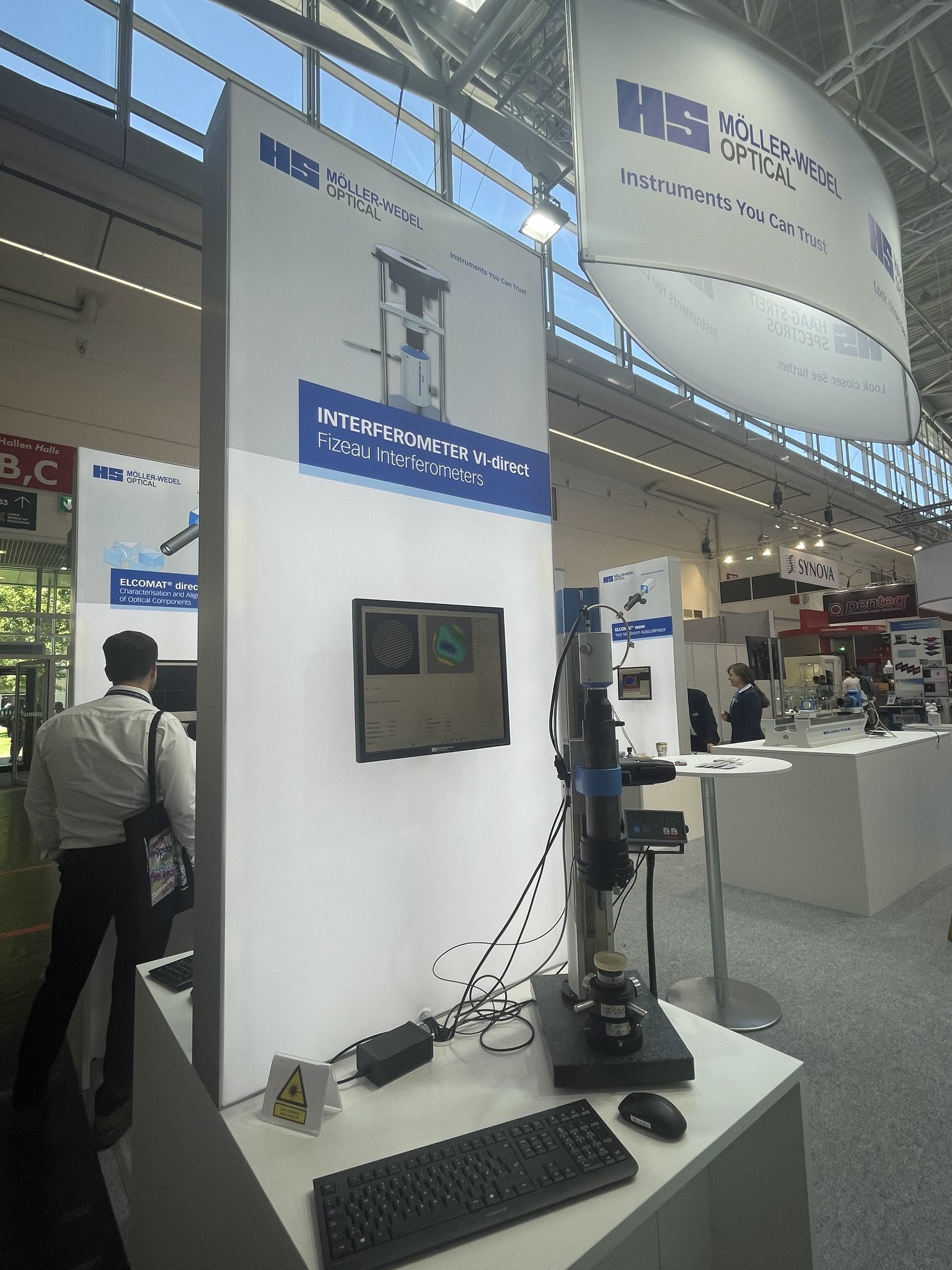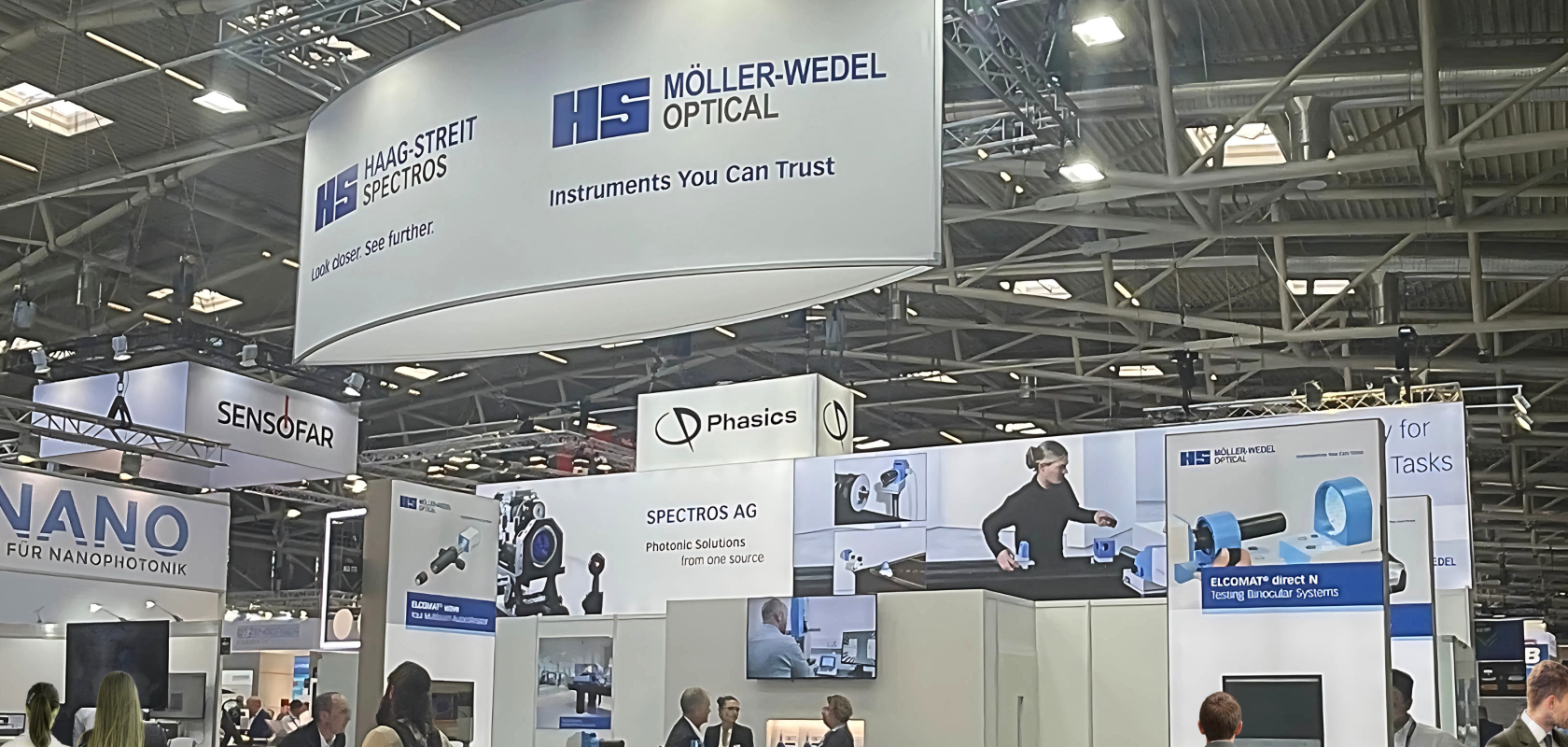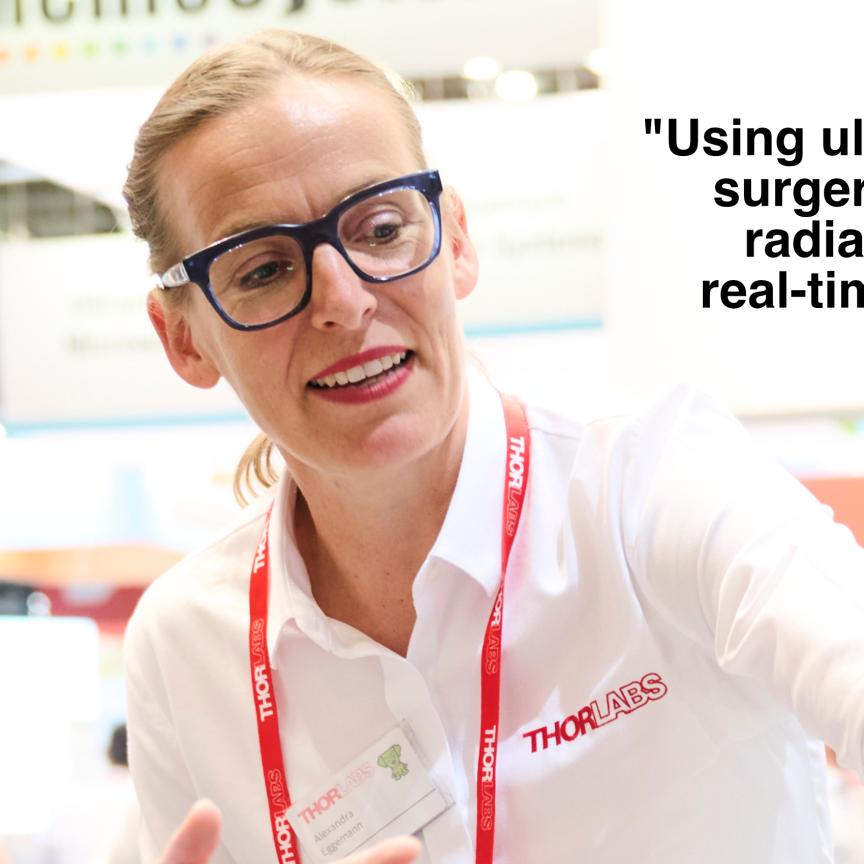At Laser World of Photonics 2025 in Munich, Möller-Wedel Optical showcased its latest developments in precision optical measurement technology, demonstrating how the company continues to push boundaries in angle measurement, surface analysis, and quality control systems across multiple industries.
The German precision instruments manufacturer used the international platform to highlight several cutting-edge products, including a groundbreaking addition to their prism measurement capabilities that promises to transform manufacturing workflows for optical component producers.
Ground prism measurement technology
One of the standout innovations at the company's booth was a new add-on system for measuring ground prisms – a significant advancement that addresses a critical gap in the manufacturing process.
"What we have here is for measuring prisms, and what's really new about it is this add-on in front that is able, but you are able to measure ground prisms," explains Stenzel. "So they are not polished, but you can actually, in the process, measure those prisms or other glass surfaces. And before polishing, you can actually say, 'OK, ground enough, or I need to re-ground and do not have to polish'."
This innovation represents a significant efficiency gain for optical manufacturers, who previously had to wait until the polishing stage to determine whether their grinding process had achieved the required precision. The technology enables real-time quality control during the grinding phase, potentially saving considerable time and material costs.
The system targets optical component manufacturers who need to ensure their prisms meet exacting specifications before investing in the time-intensive polishing process.
Flagship angle measurement systems
The company's Elcomat 5000 series continues to serve as their flagship offering for precision angle measurement applications. While acknowledging that even more precise laboratory instruments exist, Stenzel emphasises the 5000 series' practical applicability for industrial environments.
"I called it flagship. Actually, there's one above which is even more precise, but it's really only for laboratories who have the environmental conditions and keep them under control. But this is really for normal industries," he notes.
The system's versatility is demonstrated through its straightness measurement capabilities, with applications extending far beyond simple angle measurement. "In this setup, it's actually meant to measure straightness. Imagine this to be in a machine bed," Stenzel explains, highlighting the system's role in ensuring manufacturing equipment maintains precise geometric tolerances.
The Elcomat 5000 finds applications across diverse sectors, from traditional machining to silicon manufacturing, where the fundamental measurement requirements remain consistent despite different materials and processes.
Advanced surface measurement capabilities
Möller-Wedel Optical's surface measurement technology showcases the company's ability to adapt traditional measurement principles to modern manufacturing challenges. The system employs a divided illumination approach, electronically splitting measurements into four sub-apertures for enhanced precision afocal measurements.
"What you can do then is actually see if, for example, lenses are really focused, or if you've got afocal systems, that they are really afocal and not targeted, for instance, at 500 metres."
This technology proves particularly valuable for calibrating optical systems and measuring component thickness through sequential surface detection. While acknowledging that "it's not as accurate as interferometers" for surface measurement, Stenzel emphasises the system's unique capability to perform "angle measures of any kind."
Stereoscopic instrument testing
The company's expertise extends to testing complex optical systems, including stereoscopic instruments used in medical and scientific applications. This capability addresses the critical requirement for parallel beam alignment in dual-beam systems.
"In this case, also a stereoscopic instrument, you want to make sure that the beams going in here come out parallel to each other on the other side," Stenzel explains. The system can detect minute angular changes between beam pairs, essential for maintaining optical performance in binoculars, medical instruments, and telescopes.
Automotive industry applications
Möller-Wedel Optical's technology finds significant application in automotive manufacturing, particularly in windshield quality control. The company's secondary image analysis system addresses the complex optical requirements of modern vehicle windshields.

Industries want quality control for windshields and when looking at those windshields – front side, back side, sometimes also layers in between – you want to make sure that the angle between the first image and those reflections is small enough," Stenzel explains.
This technology helps manufacturers ensure that secondary reflections from headlights don't create dangerous visual distortions for drivers, with the system typically integrated into robotic scanning setups that examine multiple points across each windshield during production.
Fizeau interferometer technology
The company's Fizeau interferometer represents another facet of their comprehensive measurement portfolio, focusing on surface form analysis rather than micro-defect detection.
"What is measured is actually the surface form of this plate, and it actually detects if it's really flat or there are some errors on it," Stenzel notes. "It doesn't detect micro defects on the surface, but the general surface form."

This technology serves laser manufacturers testing mirror surfaces and companies applying optical coatings, ensuring substrate flatness both before and after coating application.
Customer-focused approach
Throughout the discussion, Stenzel emphasises Möller-Wedel Optical's commitment to collaborative problem-solving rather than simply providing standard instruments.
"What we're really looking for is working with the customer to get his measurement job done," he states. "Those setups are customer-inspired. We're really strong in advising customers on how to measure, what to do, or what the best setup will be."
This approach reflects the company's recognition that precision measurement challenges often require bespoke solutions tailored to specific manufacturing environments and quality requirements, positioning Möller-Wedel Optical as a partner rather than simply a supplier in the optical testing ecosystem.


